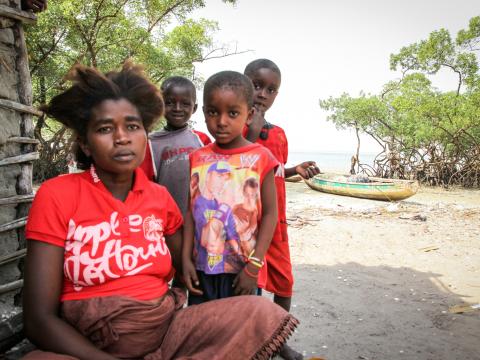What happens when the rice runs out?

By Sarah Wilson, World Vision Emergency Communications Specialist
Umu Bah had been serving smaller and smaller portions of rice to her family for weeks. Last week the rice ran out altogether.
“We bought a large bag of rice at Yagoi to sell to make cash,” she explained. “But we had to eat it instead because after they stopped us from using the ferries there wasn’t anything else.”
“We bought a large bag of rice to sell..but we had to eat it instead because there wasn’t anything else.”
Uma lives in Tombay, a small settlement on Sherbro Island in Bonthe district of Sierra Leone.
Like most people who live there, her husband is a fisherman and the family used to trade the fish he caught at nearby markets for other goods to sell and for what they needed themselves to survive.
Since the Ebola outbreak last May, the islanders have been restricted from traveling to markets in a bid to protect them from catching the disease.
These restrictions have protected these remote communities, which have reported almost no cases of Ebola. However, the fact that they have not been able to get to markets for more than four months has drastically curtailed their diet.
“When there is no food, we worry for the children the most,” said Umu. She has six children ranging in age from four to 17 years old and she is currently pregnant herself.
“When there is no food, we worry for the children the most,”
World Vision has been distributing rations of yellow split peas, rice, fortified cereal and oil to the communities on Sherbro Island and the surrounding Bonthe District. Because there are no adequate road or bridges, the food is being flown in on World Food Programme helicopters and dropped on the beaches.
The communities organize teams to collect the food on the beach and store it in schools which are not currently being used for education, until is can be distributed in an equitable way to the community.